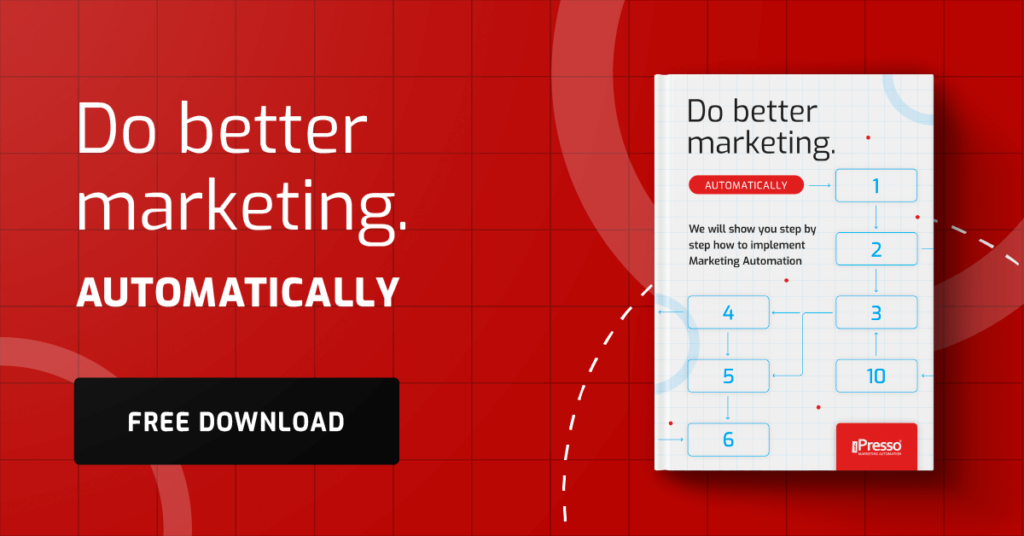Content Marketing in FMCG: How Recipes and Tips Build Loyalty Stronger Than Promotions

Is your brand just another product your customer tosses into their shopping basket? In the FMCG world, where purchasing decisions are made in seconds and are primarily dictated by price, a battle fought with promotions is a dead end. Build a lasting bond with your customer by providing them with cooking inspiration, care tips, or tricks that simplify household chores. Start offering valuable, everyday support, and sales will follow naturally.
The Problem of the FMCG Industry
Imagine a typical scene in a supermarket: two identical yogurt brands stand next to each other on the shelf. Both are good quality, both look appetizing. Which one will the customer choose? In 9 out of 10 cases, if one of them is on promotion, that will be the choice.
The fast-moving consumer goods industry, which includes food, beverages, cosmetics, and household chemicals, has been stuck in a trap for years. Customer loyalty is low and is primarily based on price. Brands fall into a spiral of constant reductions, which decreases margins and lowers the perceived value of the product. When the promotion ends, the customer moves to the competition without regret. This is a short-distance fight that proves to be a blind alley in the long run.
The Solution: Become a Part of Life, Not Just a Shopping List
There is a way to escape the price trap and build a genuine bond that will last even in the face of competition. The key is a change in mindset: the brands that win are those that deliver value extending beyond the product itself.
A yogurt brand doesn’t have to be just a breakfast product; it can become a trusted source of inspiration for healthy meals and quick desserts. A laundry detergent brand can advance from being a stain removal expert to an advisor on household cleaning. This is the role of modern content marketing in FMCG.
Content marketing involves creating and distributing valuable, engaging, and consistent content that attracts and retains a clearly defined target audience. In practice, this means the customer starts regularly seeking knowledge from the brand, which builds a habit and attachment stronger than any discount.
How to Implement This in Practice?
The greatest power of content marketing lies in its regularity and automation. It’s not about creating a single brochure, but about systematically providing help that builds a positive association with the brand.
- Automated Recipe Cycles
Olive oil producer: After signing up for the newsletter, the customer regularly (e.g., weekly) receives an email titled “Flavors of the Mediterranean.” Inside is a simple recipe for an Italian, Greek, or Spanish dish, in which the brand’s oil, of course, plays a key role.
Effect: The customer doesn’t wait for a promotion, but for the email. The brand becomes synonymous with healthy, tasty meals. A positive habit of consuming content is built, which translates into the habit of reaching for the product.
- Guides and Life Hacks
Cleaning product manufacturer: They can create a series of automated email tips in the “Cleaning Expert” cycle. Example topics include: “Spring Cleaning in 5 Steps,” “How to Remove 5 Toughest Stains (Including Red Wine)?” or “Eco-Friendly Tricks for a Sparkling Home.”
Effect: The brand stops being “just a detergent” and becomes a trusted advisor that simplifies life. The customer learns to use the product not only for basic tasks but in a more advanced and effective way.
- Interactive Tools and Personalization
Coffee brand: It can create a quiz on its website: “What Coffee Suits You?” After answering questions about preferred time of day, flavor intensity, and brewing method, the system sends a personalized series of tips on brewing the perfect cup of coffee, for instance, using a specific range of the brand’s beans.
Effect: Personalization makes the content more relevant and intimate. The customer feels that the brand cares about their individual needs and doesn’t treat them as a mass.
Why is Automation Key Here?
None of these actions are performed manually. The strength of modern content marketing is the use of marketing automation platforms.
Thanks to such a solution, a content cycle (e.g., 12 recipe emails) can be created once, and the conditions for their sending can be set. The system itself will take care of regularly delivering value to the segment of customers who have expressed interest. Marketing automation provides scale and repeatability; once built, the content engine works non-stop, ensuring regular, automated contact with thousands of customers.
What are the Effects?
Content marketing builds value that promotions can never provide.
Regular Contact: The brand doesn’t only speak up when it wants to sell something. It sends help, inspiration, and knowledge. When a sales offer actually appears, it is received with greater goodwill because it was preceded by a long period of disinterested support.
Top-of-Mind Awareness: When the customer goes to the store, they reach for “that oil they get cool recipes from,” even if the competitor’s oil is cheaper. Emotional attachment and habit win over price impulse.
Building an Expert Image: The brand becomes a trusted advisor in its category. It gains an authority that is difficult for the competition to fake.
Summary
Promotions attract the customer for a moment; they are an impulsive, momentary transaction. In contrast, valuable, automated content turns an FMCG product into an indispensable helper in daily life. Instead of fighting for a fraction of a cent on the shelf, brands should fight for a permanent place in the email inbox and in the customer’s mind. This is loyalty based on gratitude and habit, and such a relationship is stronger and more durable than any price cut.



